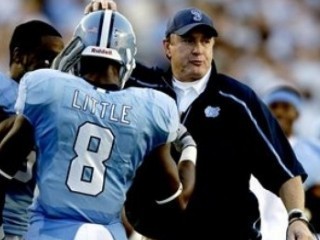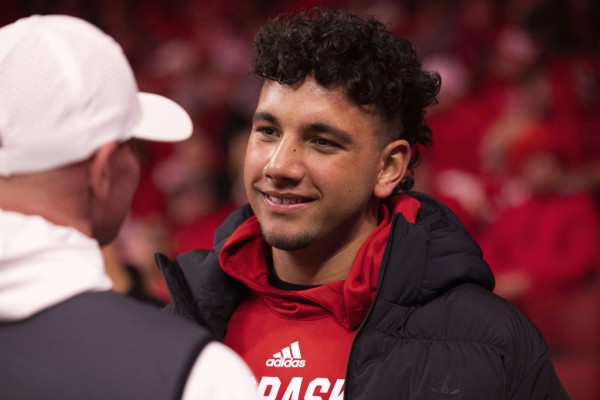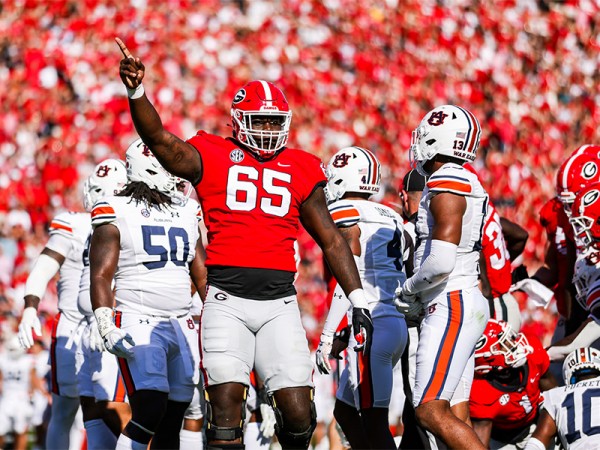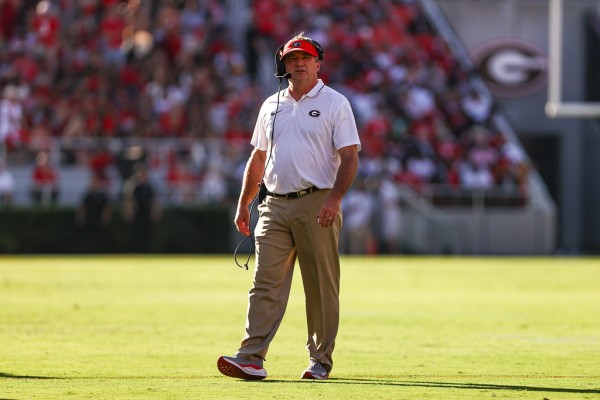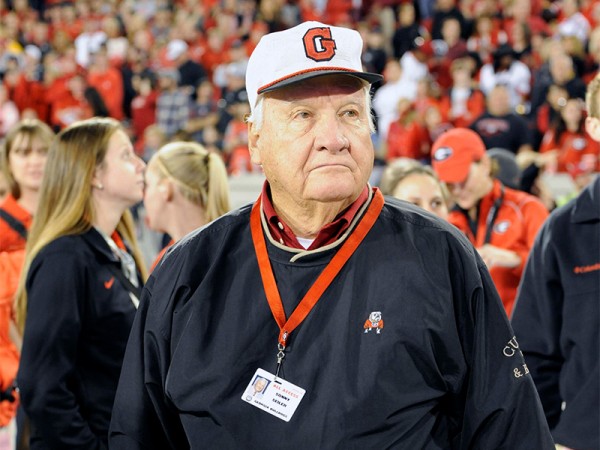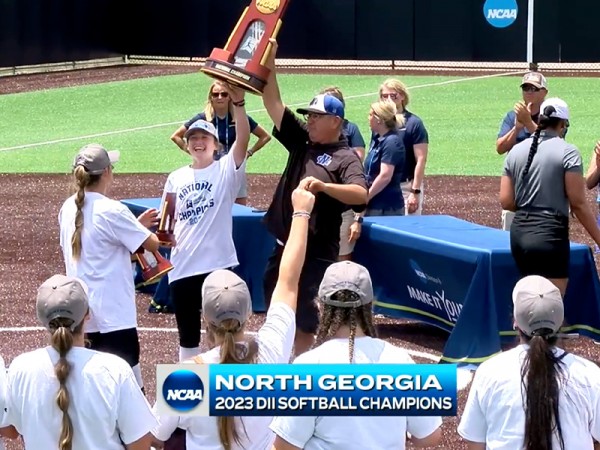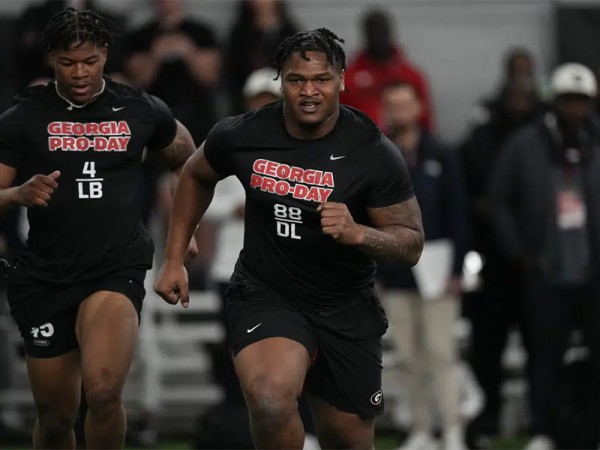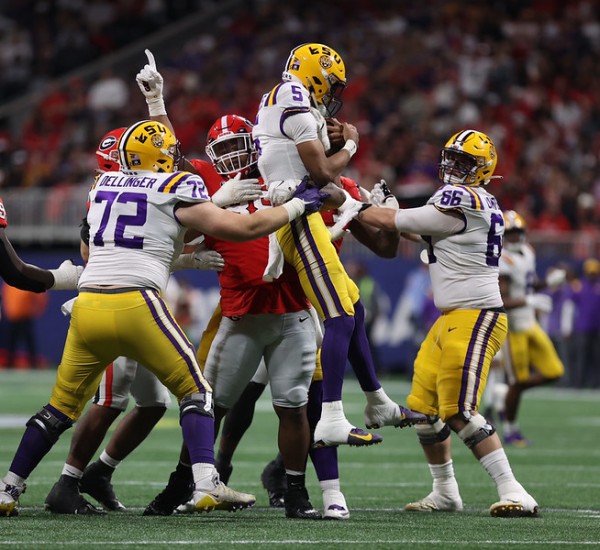North Carolina waited four months to learn whether the NCAA would be satisfied with self-imposed sanctions on the football program after an investigation into improper benefits and academic misconduct.
When the news came, it wasn't what school officials had hoped.
The NCAA infractions committee hit the program with a one-year postseason ban, a reduction of 15 scholarships and three years of probation. In a ruling Monday, the committee said the school was responsible for multiple violations, including academic fraud and a failure to monitor its football program.
It also issued a three-year show-cause penalty for former assistant coach John Blake, who had received personal loans from an NFL agent.
School officials say they won't appeal, opting instead to move on.
"Obviously this has been a painful and difficult experience," UNC chancellor Holden Thorp said Monday. "We don't like to have this kind of attention brought to any part of the university, especially one as visible as the athletic program."
The ruling caps a nearly 2-year case that ultimately led to the firing of coach Butch Davis as well as the early departure of longtime administrator Dick Baddour as athletic director. The scandal included players receiving jewelry and other gifts from people outside the program, as well as a tutor providing improper help to players on term papers.
Davis, now working as a special assistant with the NFL's Tampa Bay Buccaneers, has never been named for any violation. In a statement released by his attorney, Jon Sasser, the former UNC coach said he cooperated fully with the investigation. Davis said that his staff "implemented many practices into the program to try to prevent these types of issues."
"The NCAA's investigation and report is comprehensive and I am certain that all parties were anxious to be made aware of their conclusions," Davis said. "It has been a difficult process for everyone and there has been a great deal of time and effort, by many people, devoted to this matter.
"I am truly saddened this matter has affected so many innocent people. I wish UNC the very best."
In September, North Carolina announced it would vacate all 16 wins for 2008 and 2009, reduce nine scholarships over the next three academic years and put the program on two years of probation.
The school also issued a self-imposed $50,000 fine but it didn't impose a postseason ban in what the school called ``difficult but necessary steps.''
The committee decided that wasn't enough even though chairman Britton Banowsky commended the university's investigation.
The postseason ban is for this fall and prevents the Tar Heels from playing in either the Atlantic Coast Conference championship game or a bowl game. The scholarship reductions would be five per year, also starting in the fall.
"I tried to be prepared for anything," Baddour said. "You're always hopeful that others will see it like you do. But I think the important thing now here is we accept it and we move on and we be as good as we can be."
The probe started in June 2010 and soon became a crisis for a school that hadn't had a major violation in five decades.
In what the committee called ``a cautionary tale'' about monitoring top professional prospects, 14 players missed at least one game in 2010 and seven were forced to sit out all that season, with four of those either dismissed from the team or ruled permanently ineligible by the NCAA. Among that group was defensive end Robert Quinn, defensive tackle Marvin Austin and receiver Greg Little. All three players were chosen in the first two rounds of last year's NFL draft.
School officials appeared before the infractions committee in October, as well as Blake and his attorneys.
Blake's close friendship with late NFL agent Gary Wichard became a focus of the investigation, including $31,000 in money transferred from Wichard to Blake that Blake's attorneys have characterized as loans from one friend to another during financial trouble. Blake and his attorneys have denied Blake worked for Wichard's firm nor that there was any agreement to steer players to sign with Wichard.
But the NCAA ruled that Blake had worked as an employee for Wichard after being fired as Oklahoma's coach in 1998 and "continued recruiting clients ... even after he returned to coaching in 2002," according to the report. In addition, the committee found that the financial transactions "were made to compensate (Blake) for his work for the sports agency and the access he provided to NFL-caliber student-athletes."
The show-cause penalty would prevent Blake from performing any recruiting duties, which essentially prevents him from being able to coach.
William H. Beaver II, one of Blake's attorneys, said they're considering whether to appeal. Beaver said attorneys provided the committee with affidavits from former players who denied Blake tried to steer them to Wichard.
"We are certainly disappointed in the results and we're disappointed in the way the committee viewed what could only be characterized as circumstantial evidence provided by the NCAA staff and then the lack of weight given to the substantive evidence that we provided," Beaver said.
Both Blake and former tutor Jennifer Wiley, who graduated from the school in 2009, were cited for unethical conduct. The committee found that Wiley had provided several players with too much assistance on research papers, and also provided about $4,100 improper benefits in travel, parking expenses and free tutoring.
Wiley refused to be interviewed by investigators. The school has formally disassociated itself from her as well as former player Chris Hawkins, who had hung around the program in recent years and socialized with players until the school learned he was regarded as a prospective agent by the NCAA.
Joseph B. Cheshire V, Wiley's Raleigh-based attorney, said that while the report "is not completely acurate" as to facts about Wiley's case, he was "appreciative" that the NCAA hasn't included additional sanctions against her.
"It has been a hard journey for a person whose big heart caused her so much pain," Cheshire said in a statement. ``I am glad for her it is finally over.''
Thorp fired Davis a week before training camp, citing the cumulative damage to the university's reputation by the probe.
The day after the school fired Davis, Baddour announced he would step aside early from his planned retirement this summer so that his successor could hire the next football coach. The school hired Bubba Cunningham from Tulsa as AD. He then hired Larry Fedora from Southern Mississippi as the new coach.
Defensive coordinator Everett Withers served as interim coach last season and guided the Tar Heels to a 7-6 record along with an appearance in the Independence Bowl. Withers is now assistant head coach under Urban Meyer at Ohio State.
In a statement, ACC Commissioner John Swofford Baddour's predecessor at UNC said it's ``disturbing'' any time a member school has NCAA issues.
"Now that the University of North Carolina has a final resolution from the NCAA, I'm confident it can learn from it, put the episode behind, and move forward," Swofford said.
Friday
July 4th, 2025
7:16AM


